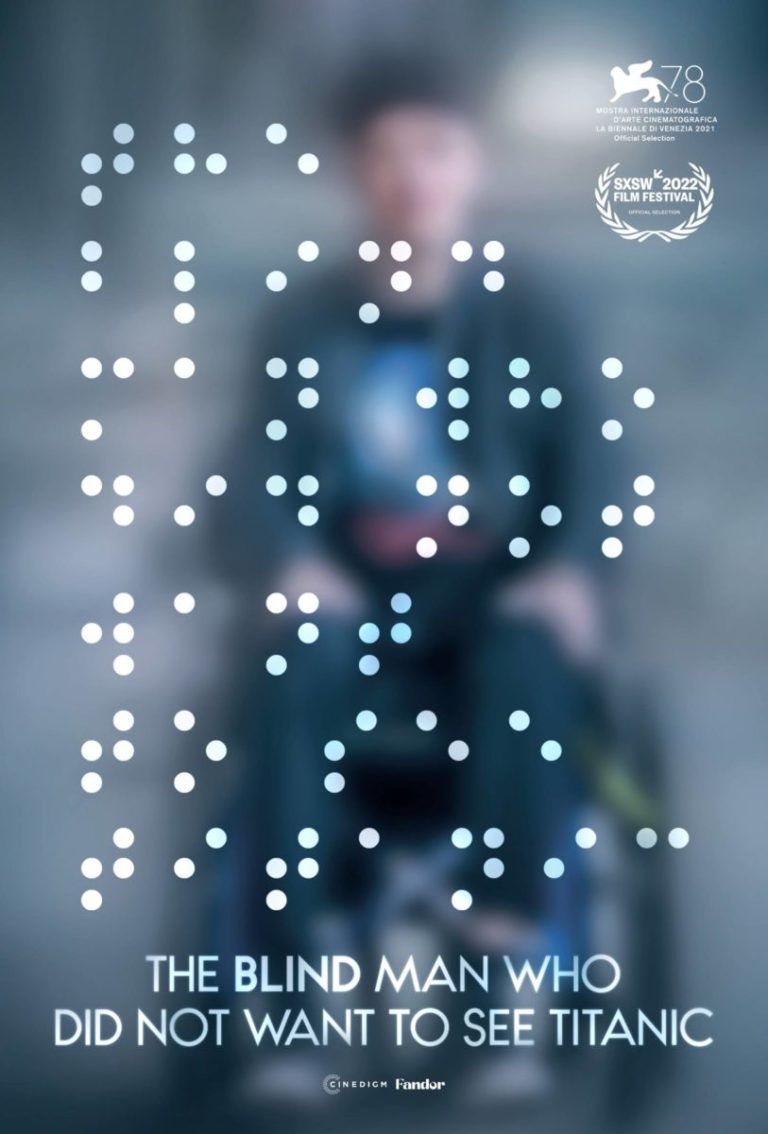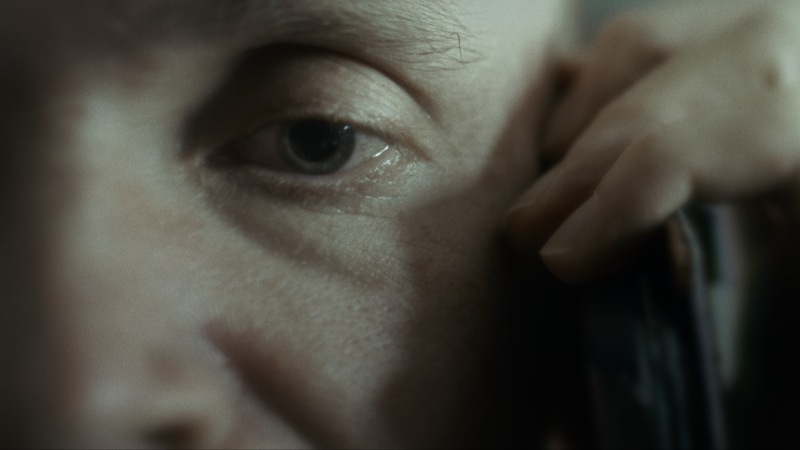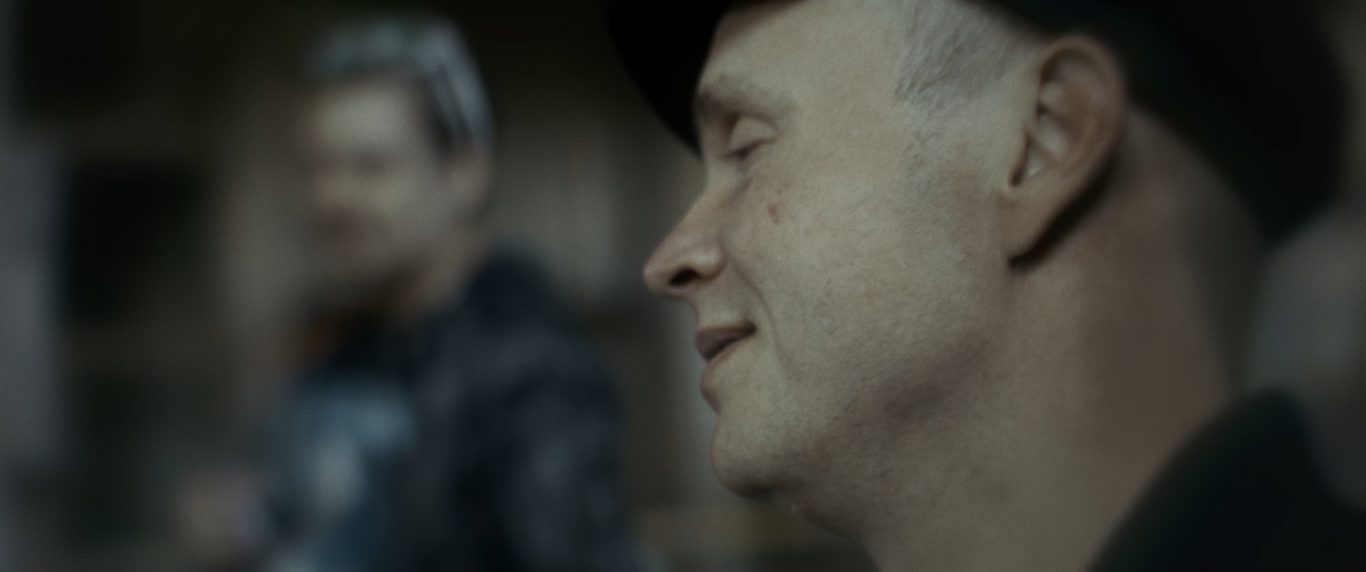
Do not be deceived by the title of the Finnish film The Blind Man Who Did Not Want To See Titanic: despite the comedic vibe it’s a gripping thriller and a profound drama. The timing of its release couldn’t be more perfect: it arrives in the United States a week before James Cameron’s 1997 box-office iconic movie returns to the big screen, remastered in 3D 4K HDR and high-frame rate, to celebrate its 25th anniversary.
The film directed by Teemu Nikki came into being in a serendipitous manner. A few years ago the filmmaker asked his actor friend Petri Poikolainen — who had lost his sight and much of the mobility due to multiple sclerosis — if he still wanted to act. Petri admitted it was still his dream. Thus, the main role of the film was tailor-made for him.

The Blind Man Who Did Not Want To See Titanic (Sokea mies joka ei halunnut nähdä Titanicia), follows a day in the life of Jaakko (Petri Poikolainen), a man living in Finland who is blind and confined to a wheelchair. Despite his condition he has a very sharp wit that has charmed a woman with whom he talks over the phone every day, Sirpa (Marjaana Maijala). Living in two different cities, they have never met in person, but they never miss their daily phone call. They talk about movies, Jaakko was a cinephile before losing his vision and had a very strong passion for John Carpenter. However there is one film that never caught his interest: Titanic. Despite his appreciation for James Cameron’s filmography, Jaakko’s copy of the DVD is still wrapped in plastic.
Sirpa and Jaakko have in common frail bodies and they use films to mock their alienated routines — there is a frequent reference to Groundhog Day. But everything changes when Jaakko hears about Sirpa’s declining health, and decides to take a trip on his own, all the way from Tampere to Hämeenlinna, to meet her. It is only two taxis and a train ride away, and he is adamant he can depend on the kindness of strangers. Things will not turn out as planned, as Jaakko goes through a hair-raising adventure to reach his sweetheart.
The film is remarkable for the way it is shot: it maintains the blind man’s perspective and all we see is his face, the details of the wheelchair and some blurry figures who approach him. This truly plunges audiences in a vague idea of what it means to go through what Jaakko is experiencing. From the opening credits we are catapulted in a dimension that is dominated by blindness, as braille characters run on the screen and a voice announces the crew and cast of the movie that is about to start.

Once the action begins, cinematographer Sari Aaltonen is exceptional in creating a blurry and grainy photography: the shallow focus allows viewers to share the experience of being visually impaired. The tight shots, prevent us from understanding Jaakko’s surroundings, making us feel his bewilderment and angst. Moreover, the acting is spot on, as every member of the cast coveys utter authenticity and magnetism in each role, notwithstanding whether the character is a hero or a villain.
The Blind Man Who Did Not Want To See Titanic has conquered the festival circuit, starting from the 79th Venice Film Festival. It was also part of the selection of SXSW Film Festival, Busan International Film Festival, Tallinn Black Nights Film Festival, Karlovy Vary International Film Festival, Beijing International Film Festival and Thessaloniki International Film Festival.
The film alternates poetic moments when the protagonist dreams of running outdoors, to the thrilling instants that show his helplessness in the face of danger. There are many moods that coalesce throughout. From the perky moment when the song Ilmalaiva by indie pop musician Jari Raaste plays, to when Petri’s caregiver goes to his home to look after him. From the moment when the protagonist’s father calls him on the phone treating him like a little boy, to when the disabled man takes the courage to venture into the world with his own fortitude and good will.
The Blind Man Who Did Not Want To See Titanic presents a great life lesson to all people without disabilities who whine and complain about petty things. Through this impressive and suspenseful film, Jaakko sets an uplifting and aspirational example for all.
Final Grade: B+

